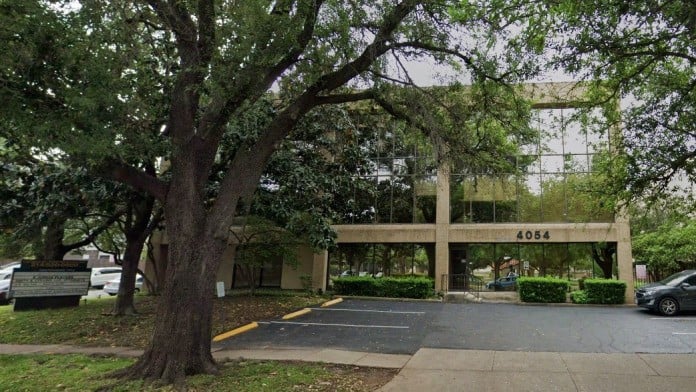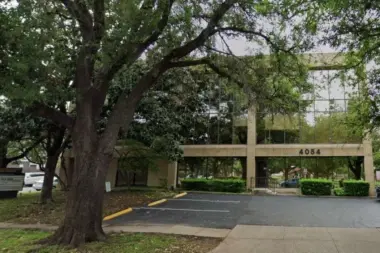About Legacy Counseling Center
Located in Dallas, Texas, Legacy Cares is an organization that has a Counseling Center for individuals struggling with substance use disorder. The addiction treatment services they offer include the intensive and traditional outpatient program along with individual counseling. One thing unique I noticed about this facility is they focus on providing these services to individuals who have HIV or AIDS. Clients in the Legacy Substance Abuse Program are required to be 18 years of age, HIV positive with a letter of diagnosis, and remain alcohol and drug free.
Comforting Care On Your Schedule
Substance abuse counselors will help HIV and AIDS clients cope with their illness and also address other mental health issues and concerns related to their addiction. The facility will provide this care to you at a time that’s convenient for you in the day or the evening. There are also bilingual counselors available if needed.
Outpatient Recovery Support
The intensive outpatient program is nine weeks long and requires you to attend sessions 10 hours per week. You’ll participate in three hour group sessions three days a week and a one hour individual counseling session. Helpful topics that will be covered include life skills development and relapse prevention education. You’ll learn about the effects of drugs and alcohol on HIV and AIDS and get the resources you need to live a sober lifestyle.
Minutes Away From Downtown Dallas
Legacy Cares is located on Mckinney Avenue, which is just a few minutes from various fun activities in downtown Dallas that you can enjoy after treatment sessions. You can visit The Dallas World Aquarium or enjoy a nice walk at the Civic Garden.
Latest Reviews
Rehab Score
Gallery


Other Forms of Payment
Medicaid is a state based program that helps lower-income individuals and families pay for healthcare. Medicaid covers addiction treatment so those enrolled can use their coverage to pay for rehab. When a program accepts Medicaid the client often pays very little or nothing out of their own pocket.
Medicare is a federal program that provides health insurance for those 65 and older. It also serves people under 65 with chronic and disabling health challenges. To use Medicare for addiction treatment you need to find a program that accepts Medicare and is in network with your plan. Out of pocket costs and preauthorization requirements vary, so always check with your provider.
Addiction Treatments
Levels of Care
Outpatient Programs (OP) are for those seeking mental rehab or drug rehab, but who also stay at home every night. The main difference between outpatient treatment (OP) and intensive outpatient treatment (IOP) lies in the amount of hours the patient spends at the facility. Most of the time an outpatient program is designed for someone who has completed an inpatient stay and is looking to continue their growth in recovery. Outpatient is not meant to be the starting point, it is commonly referred to as aftercare.
Intensive Outpatient Programs (IOP) are for those who want or need a very structured treatment program but who also wish to live at home and continue with certain responsibilities (such as work or school). IOP substance abuse treatment programs vary in duration and intensity, and certain outpatient rehab centers will offer individualized treatment programs.
Treatments
The goal of treatment for alcoholism is abstinence. Those with poor social support, poor motivation, or psychiatric disorders tend to relapse within a few years of treatment. For these people, success is measured by longer periods of abstinence, reduced use of alcohol, better health, and improved social functioning. Recovery and Maintenance are usually based on 12 step programs and AA meetings.
During rehab in Texas, you'll deal with underlying issues that contribute to addiction. By addressing these challenges and learning healthy ways to cope with them, you'll develop strategies that help you live a drug-free lifestyle.
A combined mental health and substance abuse rehab has the staff and resources available to handle individuals with both mental health and substance abuse issues. It can be challenging to determine where a specific symptom stems from (a mental health issue or an issue related to substance abuse), so mental health and substance abuse professionals are helpful in detangling symptoms and keeping treatment on track.
Opioid rehabs specialize in supporting those recovering from opioid addiction. They treat those suffering from addiction to illegal opioids like heroin, as well as prescription drugs like oxycodone. These centers typically combine both physical as well as mental and emotional support to help stop addiction. Physical support often includes medical detox and subsequent medical support (including medication), and mental support includes in-depth therapy to address the underlying causes of addiction.
Programs
Adult rehab programs include therapies tailored to each client's specific needs, goals, and recovery progress. They are tailored to the specific challenges adult clients may face, including family and work pressures and commitments. From inpatient and residential treatment to various levels of outpatient services, there are many options available. Some facilities also help adults work through co-occurring conditions, like anxiety, that can accompany addiction.
Young adulthood can be an exciting, yet difficult, time of transition. Individuals in their late teens to mid-20s face unique stressors related to school, jobs, families, and social circles, which can lead to a rise in substance use. Rehab centers with dedicated young adult programs will include activities and amenities that cater to this age group, with an emphasis on specialized counseling, peer socialization, and ongoing aftercare.
Clinical Services
Group therapy is any therapeutic work that happens in a group (not one-on-one). There are a number of different group therapy modalities, including support groups, experiential therapy, psycho-education, and more. Group therapy involves treatment as well as processing interaction between group members.
In individual therapy, a patient meets one-on-one with a trained psychologist or counselor. Therapy is a pivotal part of effective substance abuse treatment, as it often covers root causes of addiction, including challenges faced by the patient in their social, family, and work/school life.
Staff

Brooke Nickerson-Henderson, M.S., LMSW
Executive Director

Jason L. Brock
Director of Development

Wes Perdue
Therapist

Brian Kennedy, M.S., LPC-Associate
Therapist
Contact Information
4054 Mckinney Avenue
Suite 102
Dallas, TX 75204




